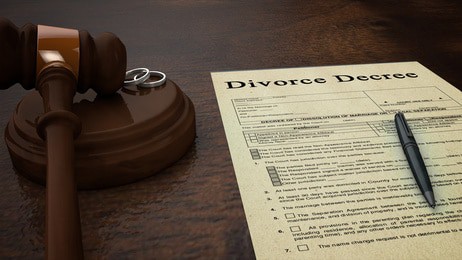
Is getting a divorce an extenuating circumstance? Let me ask that again in a slightly different way – is getting a divorce an extenuating circumstance in the eyes of a mortgage underwriter? Those are 2 VERY different questions. In real life, an emphatic and absolute YES answers the first question. Unfortunately, the answer to question 2 is “it all depends.”
How on earth can a divorce not be an extenuating you ask? Mortgage underwriters and mortgage “rule makers” look at the term extenuating circumstance in a different light than human beings do. For example, if you get in a car accident and can no longer work/earn an income that is extenuating. If your company closes its doors, moves to China and lays you off that is extenuating. Both examples were 100% out of your control. Divorce is not quite that cut and dry.
What is the Mortgage Definition of “Extenuating”
Underwriters have a simple formula they use to determine whether or not a circumstance can be considered extenuating. If the circumstance meets each of the following:
1. One time in nature
2. Beyond your control
3. Causes significant reduction in income
than it is considered extenuating. The trick is making sure that your loan officer can document that your circumstance clearly meets each of these criteria. Then, and only then will an underwater shed some grace on you!
Why is an Extenuating Circumstance Helpful
Today there are numerous different mortgage rules that state a borrower must wait x number of years after a short sale, bankruptcy, foreclosure or deed in lieu of foreclosure before qualifying for a new mortgage. The time that a prospective homebuyer must wait is different depending on the loan type they are applying for. It also depends on what happened prior to the event. However, if a borrower can prove and document an extenuating circumstance than they can typically be considered eligible for a new mortgage prior to the standard waiting period for a particular loan type.
Divorce as an Extenuating Circumstance
Does divorce ever meet the 3 magic criteria above?
1. One time in nature – yes (even though the divorce rate is 50% is and many divorced folks are repeat offenders the hope is that divorce is one time in nature.
2. Beyond your control – Sort of – as long as it’s her fault or his fault than yes. Kidding aside, mortgage underwriters consider divorce beyond a borrowers control. They may not be the softest people in the world but even underwriters don’t want someone being miserable forever!
3. Causes significant loss of income – this is the one that is sometimes yes and sometimes no.
When each spouse earned an income and contribute to the bills in a reasonably equal fashion, subtracting one of those incomes can be considered a significant loss of income. However, that is not always constitute a significant loss of income. What if in the divorce each spouse earned an equal income. What if in the divorce decree the bills were split equally post divorce. In that case, each ex has the same proportionate debt to income ratio and cannot say that they short sold or foreclosed because of the divorce.
In the case where an ex is left with a much higher proportionate debt load after the divorce due to the loss of their ex’s income they can be eligible for an extenuating circumstance exception. An experienced loan officer will know the difference and will guide you through this process prior to you going under contract on a new home. The difference can save you money, time and prevent a great deal of unneeded stress!
By Jeremy House

